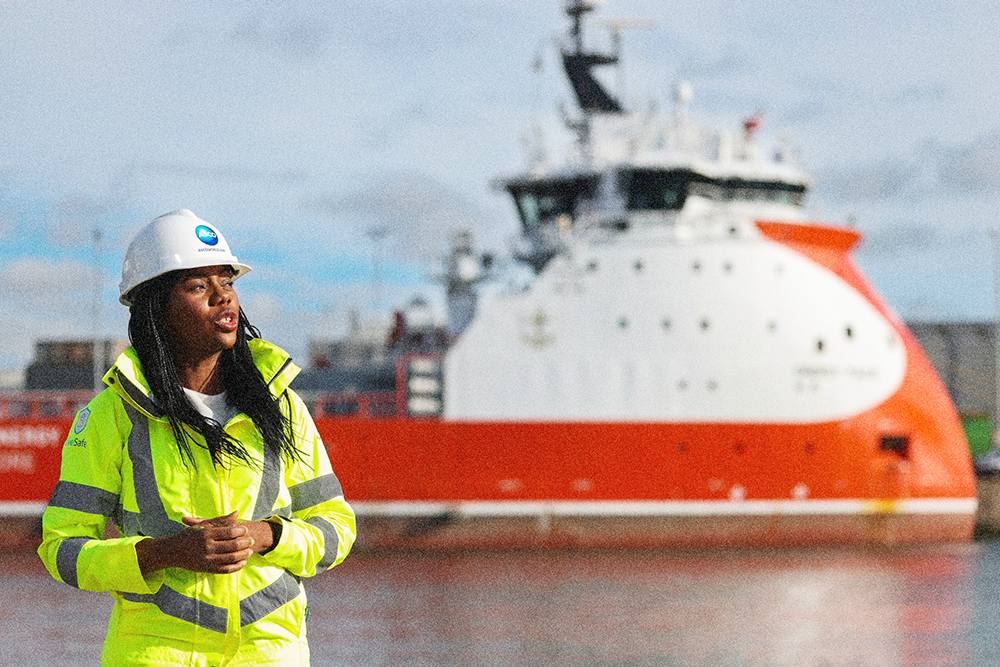
‘We’re going to get all our oil and gas out of the North Sea’ was certainly a winning line for Kemi Badenoch to deliver to the Offshore Europe conference in Aberdeen this week, just as she might open with ‘I love puppies’ to a spaniel breeders’ convention in Surrey. But other than as an appeal to climate-change-sceptic would-be Reform voters, how much sense did it make?
A recent study by the industry body hosting the Aberdeen event says that if – in some Ed-Miliband-free alternative universe – all remaining reserves under the North Sea were licensed for development, they could provide half the UK’s hydrocarbon needs until 2050, by which date we might have approached full transition to cleaner energy. But that means very little in terms of domestic energy prices or security of supply, since the vast bulk of UK oil and gas production is exported into world markets while we buy back what we need, especially natural gas for power generation from Norway and the Gulf, at prevailing world prices.
And some 70 per cent of our remaining reserves are reckoned to be oil rather than gas, but our capacity to process crude oil is a fraction of what it used to be, just five refineries reduced from 18. Only in the event of total breakdown of global trade – a third world war comes to mind – might ‘our oil and gas’ usefully be kept at home.
As to the climate change argument, if Badenoch addresses it at all she might claim that a modest extra three or four billion barrels of oil from the North Sea by 2050 will make scant difference while the US, China and other industrial nations carry on setting the carbon-burning pace. I’m acting boldly in the UK’s interest, she could add, not urging others to do as we do.
Or something like that, because ‘maxing out’ is a slogan rather than a real energy policy for the next government, which must address critical shortages of non-gas baseload generating capacity and investment in other technologies and adaptations that might keep life bearable in mid-century. Still, the extraction of every last max-out barrel is reckoned to be worth a potential £150 billion to the UK economy, mostly in support of jobs and businesses in the north-east of Scotland. Aberdonians may applaud, but Badenoch’s shallow soundbite won’t change the political climate in her favour.
Swansong
Even as I travel home from France – not before time, I hear you mutter – I learn a useful new phrase, le chant du cygne, the swansong: in this case, of prime minister François Bayrou, who is all but certain to follow his predecessor Michel Barnier into oblivion next week after barely eight months in post, while President Emmanuel Macron who appointed them clings to power, impotent, mocked and despised. All three are victims of French resistance to welfare reform that refuses to take account of soaring public debt – an impasse dating back four decades to François Mitterrand’s unsustainable reduction of the pension age from 65 to 60. It will make headlines again shortly when unions brings the country to a halt for a day of manifestations on 18 September.
How markets respond remains to be seen. Doomsters see the French debt crisis as fuel for global economic apocalypse; I stick to my broader view (26 July) that ‘something surely has to give… maybe in the more traditional crash month of October’. But I’ll disagree mildly with my Dordogne neighbour Lord Sumption, who wrote last week that France’s national problems are ‘similar [to our own] but gratifyingly worse’.
Similar, yes. Worse? No, just noisier. Look at the current jittery spike in gilt yields, at Labour’s failure to enforce basic welfare cuts and at the way the Prime Minister has undermined his Chancellor in this week’s reshuffle, rather than sending her cleanly to the guillotine like Barnier and Bayrou. And even if France’s problems really are more intractable, why is that ‘gratifying’? My own summer swansong is this: French citizens are better served than ours – more efficiently and courteously, that is, as well as more amply – at every level of public administration, not to mention better fed. And Macron, unlike Sir Keir Starmer, at least started with a vision for positive change. I just wish our neighbours would count their blessings and get real about how much they expect their state to provide.
Bets are off (for a day)
We’ll be having our own day of manifestation next week, but only on the Turf. Racing is going on strike at Carlisle, Kempton, Lingfield and Uttoxeter to draw attention to a threatened tax hike on bookies’ profits from 15 to 21 per cent, in line with online casino gaming. The British Horseracing Association reckons this could cost the industry a ‘catastrophic’ £330 million over five years.
Meanwhile, Rachel Reeves has been urged by her predecessor Gordon Brown to raise gambling taxes generally – and it’s easy to see why. Betting in all its forms, if not the sin the presbyterian Brown may perceive, is certainly a foolish pastime. But most horse-fanciers who are not professional high-rollers venture only a top slice of income they can afford to lose, so why not tax their habit to the hilt? Ah, says the BHA, but racing is ‘a cherished part of Britain’s heritage and culture’ which supports 85,000 jobs; while the Betting and Gaming Council says higher taxes on regulated betting will drive growth in untaxed black-market bookmaking, which already attracts an estimated 1.5 million British punters.
But Reeves is on a desperate money hunt ahead of her Autumn Statement rather than a moral mission, and I doubt she’ll pause to consider whether the 2,752 jobs in racing the BHA says are at risk in the first year of the tax rise are more worthy than the public sector headcount that might otherwise have to be slashed. As in other areas of economic life the Chancellor has her eye on, if the numbers add up, you can bet (online or otherwise) the raid will happen. Racegoers will have lost a wet afternoon at Uttoxeter to no avail.








Comments